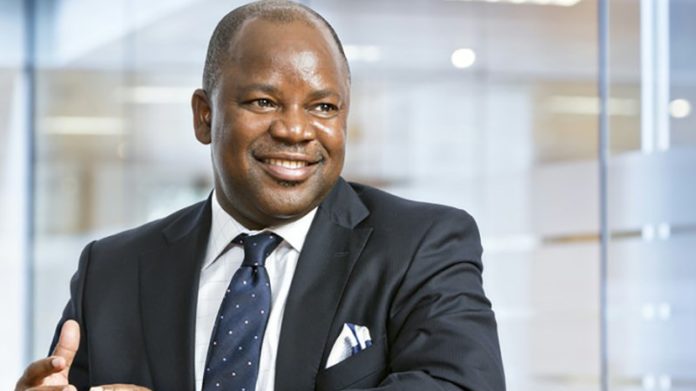
THUNGELA Resources brought the curtain down on an astonishing first year of trade by announcing an R18 per share dividend – a R2.5bn payout – and said the outlook remained strong given the spike in thermal coal prices.
The group traded at R21,90/share when it opened on the JSE in June last year following the demerger of its assets from Anglo American. At the time there were fears Thungela’s share price would flounder under an avalanche of selling by Anglo shareholders.
Today, however, the group unveiled a R6.9bn profit for the 12 months ended December owing to elevated pricing for coal – partly driven by disruptions in supply from Indonesia, South Africa and now Russia given it accounts for a fifth of seaborne trade.
The coal market oscillated between market extremes last year. In February, the price for coal ex-Newcastle (Australia) was $248 per ton. Prior to this there were concerns that the coal market would be oversupplied.
Thungela’s payout – 63% of adjusted operating free cash flow and above its dividend policy of a minimum 30% level – suggests the company is sanguine about the market’s prospects. “Our exceptional performance shows the magnitude of what we have been able to accomplish since demerger,” said July Ndlovu, CEO of Thungela today.
This was despite logjams on the Mpumalanga to Richards Bay coal line which is operated by Transnet, the state-owned logistics and freight company.
Deon Smith, CFO of Thungela, said Transnet problems amounted to an opportunity cost of at least R2bn for the 12 months on the firm’s base case assumptions. Set against the way the thermal coal price increased the potential loss was “sky’s the limit”, said Smith.
Owing to rail constraints, Thungela’s stockpiles increased 1.5 million tons (Mt) during the year to 2.8Mt as of December 31. Of these stockpiles, about 400,000 tons was located at port. As a result, the working capital build up as of the year-end was R3.4bn, said Smith.
“This is probably one of the biggest missed opportunities of the year not just for Thungela but for South Africa,” said Smith. Stockpiles had not moved materially in 2022 as the firm “throttled back” production partly to lower costs.
Production for 2022 was guided to between 14Mt to 15Mt compared to actual production of 15Mt (2020: 16Mt) in the year under review. Ndlovu said he expected a “gradual recovery” from Transnet which has struggled with vandalism and theft of copper cables on the rail as well as suspected sabotage of trains and equipment.
Thungela also announced that life extension projects Elders and Zibulo North shaft had been submitted for board approval in 2022 and the first quarter of 2023 respectively. They would bear capital expenditure of R4bn over four years.
Shares in the company edged up 0.6% in Johannesburg today but year to date the stock is about 86% higher. Ndlovu said the group intended to ask shareholders for permission for a share buy-back at Thungela’s annual general meeting.
Summertime for coal
Morgan Stanley said in a report in February that some of the supply disruptions in the coal sector may not be a fleeting phenomenon owing to Covid related absenteeism in Australia and Indonesia which were 27% below fourth quarter levels at the time of writing. “We have been writing about the transitory nature of thermal coal’s seaborne supply disruptions for the last 1.5 years, but disruptions appear to have become rather structural,” it said.
“People have been writing the obituary for coal far too early; it is the commodity that everyone loves to hate,” said Ndlovu. But the coal market was extremely robust as a result several factors including Russia’s invasion of Ukraine.
Thungela had identified potential new customers in Europe where shutoffs of gas and oil supply in terms of European Union sanctions on Russia has created a rush for alternative fuel sources. “Demand for coal has shifted to the rest of the world. There is no way South Africa could fill even a fraction of what Europe requires,” said Smith.
Despite the improvement in the coal market’s prospects, Ndlovu said the group was looking at possible commodity and geopgrahic diversification opportunties for the medium to long-term, as well as weighing up the benefits of new build coal mines or acquisitions given that some assets were trading at “ridiculously low multiples”.











